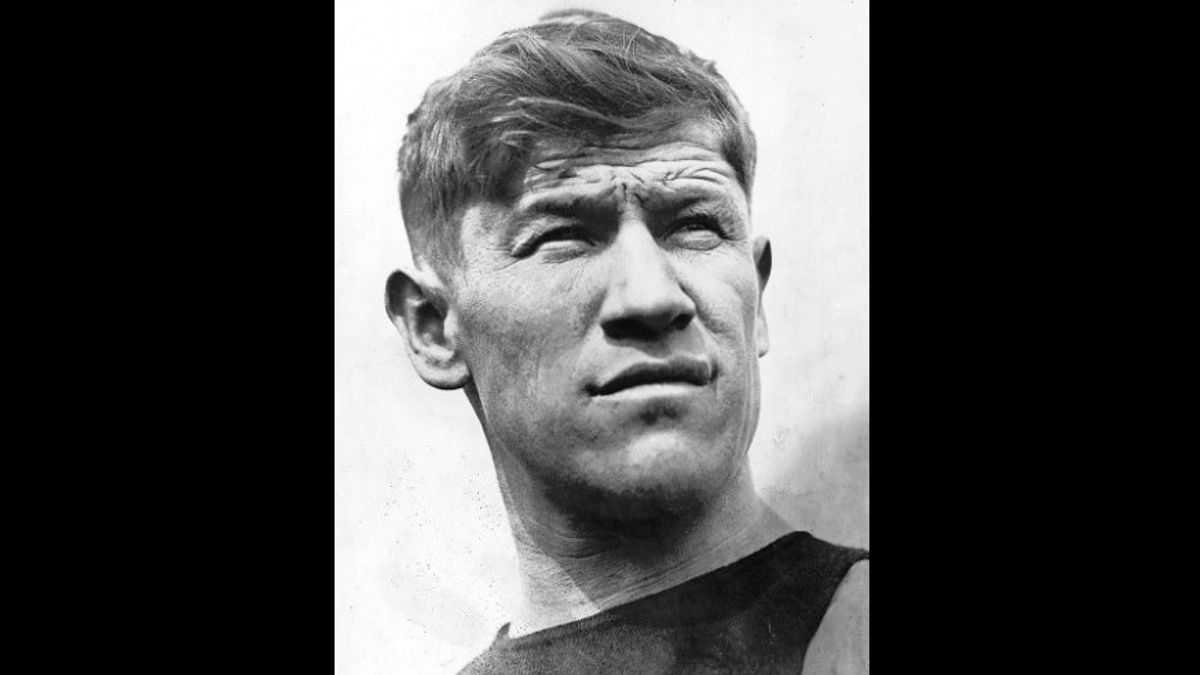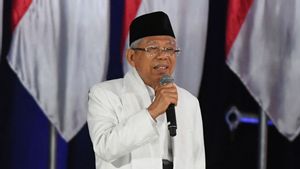JAKARTA - About 70 years after his gold medal was withdrawn and nearly 20 years after he died, athlete Jim Thorpe got his medal back. Jim Thorpe's story is one of the most complicated to describe how important a medal is to an athlete.
Thorpe actually earned his medal at the Stockholm Olympics in 1912. He won gold medals in both decathlon and pentathlon. He also finished fourth in the high jump and seventh in the long jump.
His winning margins in the decathlon and pentathlon were staggering, prompting King Gustav V of Sweden to declare, "You, sir, are the greatest athlete in the world."
Thorpe replied, "Thank you, King."
In 1913 his medal was withdrawn after it was revealed that Thorpe had played a two-season basebal semipro in North Carolina. To quote Sport History Today, on January 18, 1983, at an event in Los Angeles, Juan Antonio Samaranch, president of the International Olympic Committee (IOC), awarded Thorpe's children a gold medal to replace the medal that had previously been forced to withdraw.
The ceremony followed an announcement from the IOC that it would return Thorpe's medal and restore his amateur status. The committee responded to a request on Thorpe's behalf by William E. Simon, president of the United States (US) Olympic Committee.
When Thorpe's professionalism was first exposed, he wrote in a "confession" letter to the American Athletic Association (AAU), "I hope I will be forgiven by the fact that I am just an Indian child and I don't know all about it." But the reason for ignorance was rejected.
There were no serious attempts to return the Thorpe medal until 1943, when a resolution was introduced to the Oklahoma House of Representatives by two legislators who were also Indian. They asked for official support from the State of Oklahoma to petition the AAU to return its medal and return Thorpe's name to the record books.
However, various attempts also seemed tough and did not take Thorpe and his story anywhere. Even until he breathed his last.
Finally, US President Gerald Ford spoke for Thorpe in 1975. He wrote a letter to Lord Killanin, president of the IOC. Ford asked whether the panel "would consider this request and act with a sense of justice regarding the history and contribution that Jim Thorpe has made to the world of sport."
But the IOC did not respond. On October 8, 1982, the US Congress agreed to an earlier Senate resolution stating that "Congress is of the opinion that the International Olympic Committee should formally recognize Thorpe's Olympic achievements and award his family a medal at the 1984 Olympics."
Finally, on October 13, 1982, the IOC announced they had restored Thorpe's amateur status and that his gold medal would be awarded posthumously in January of the following year in Los Angeles.
Thorpe diedCiting Olympic.org, Thorpe died of heart failure on March 28, 1953. He was 64 years old when he closed his eyes.
Before and after competing in the Olympics, he continued to pursue a career in athletics, playing baseball and basketball. He also became one of the first big stars of American professional football (American Football).
His name was famous, when with the Canton Bulldogs proclaimed "world champion" in 1916, 1917 and 1919. With the Bulldogs, Thorpe was instrumental in founding the National Football League (NFL) and became the first president in 1920.
Thorpe finally retired from high-level sports at the age of 41. The Associated Press named him the greatest athlete in the US and officially assumed the status of an American football player (American football) in the first half of the 20th century.
Meanwhile, an ABC Sports poll in 2000 ranked him as the best American football athlete in the US. Further accolades came in the 1950s, when the town of Mauch Chunk in Pennsylvania was renamed Jim Thorpe in honor of the sport's star.
Nicknamed "The Switzerland of America", the city that now bears his name, Jim Thorpe, is his final resting place. A burial site was built from land taken from his hometown Oklahoma and the Olympic Stadium in Stockholm.
His tomb is made of marble and there is a monument inscribed with the famous words he had spoken to him by the king of Sweden.
"You, sir, are the greatest athlete in the world."
The English, Chinese, Japanese, Arabic, and French versions are automatically generated by the AI. So there may still be inaccuracies in translating, please always see Indonesian as our main language. (system supported by DigitalSiber.id)










